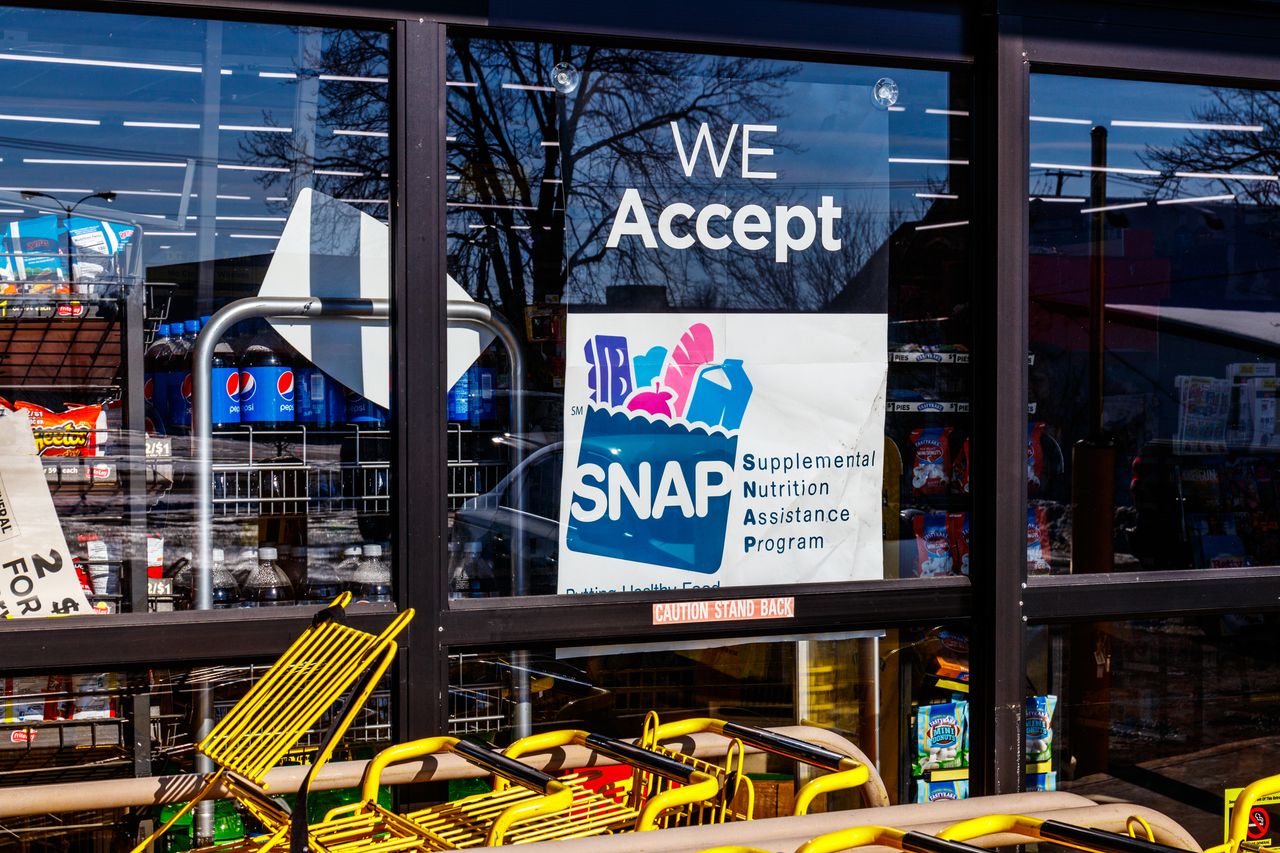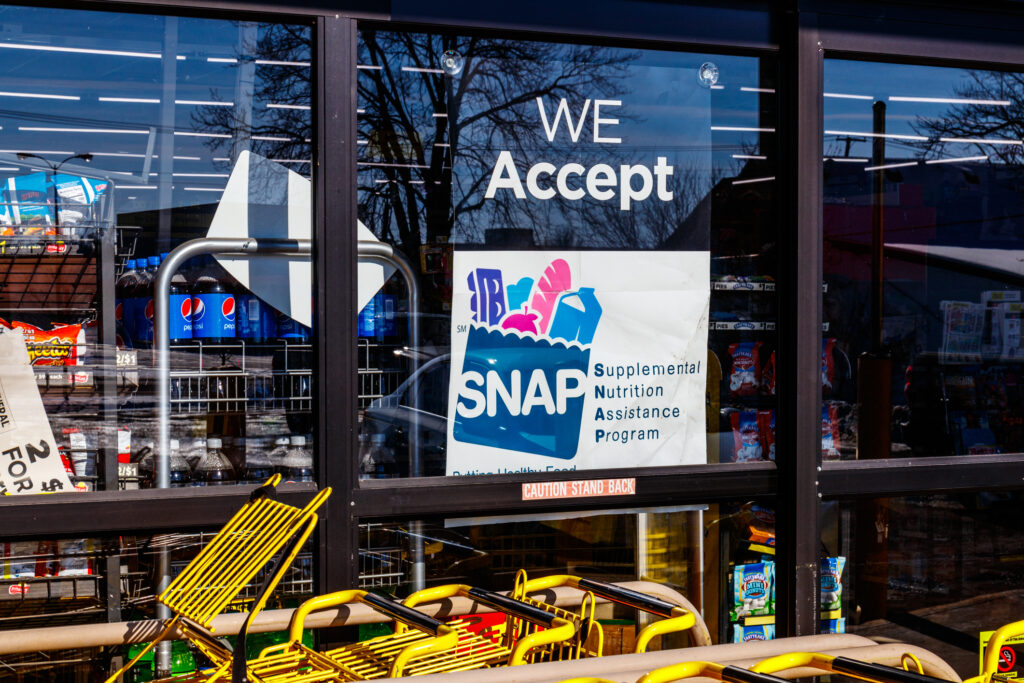
The Trump administration is expanding work requirements for food stamp beneficiaries, and the new rules could leave some vulnerable households at risk of going hungry.
The recently passed tax cuts and spending legislation includes a provision that eliminates work exemptions for veterans receiving benefits from the Supplemental Nutrition Assistance Program (SNAP), the federal food assistance program previously known as food stamps.
Under Trump’s new tax legislation, able-bodied adults ages 18 to 64 must work, participate in job training, or volunteer at least 80 hours a month to be eligible for benefits – that includes veterans. Only those who are pregnant or disabled would remain exempt. This rule change may start as soon as 2026.
Sign up for Kiplinger’s Free E-Newsletters
Profit and prosper with the best of expert advice on investing, taxes, retirement, personal finance and more – straight to your e-mail.
Profit and prosper with the best of expert advice – straight to your e-mail.
This is troubling, given that the majority of the 1.2 million veterans in SNAP households are under 65, do not have a disability, and do not live with children, as reported by the Center on Budget and Policy Priorities (CBPP).
Critics argue that the newly expanded work requirements could cause millions to lose food stamps. That includes thousands of veterans and their families, since many vets struggle to transition to civilian jobs after their service.
“Millions of Americans will be at risk of going hungry — including a significant number of military and veteran families,” a coalition of military and veteran organizations wrote in a letter urging Congress to reject provisions that would “leave behind” Veterans with low income.
Here’s what you need to know about how the new SNAP requirements are changing under President Donald Trump’s new 2025 tax law.
New SNAP work requirements impact Veterans
President Trump’s new tax legislation reshapes the eligibility standards for the nation’s largest anti-hunger program, and it could hit close to home.
Over 40 million families with low incomes rely on SNAP (formerly known as “food stamps”) to put food on the table each month. That’s 1 in 8 people, including 1 in 5 children across the country.
The so-called ‘big beautiful bill’ proposes significant changes to the life-saving food assistance program. To fund tax cuts, the bill slashes federal SNAP funding by nearly $187 billion over the next decade – the largest cut in the program’s history.
The new legislation also requires states to contribute to the federal benefit program’s costs and expands work requirements for eligibility.
Trump’s expanded work requirements will soon impact all SNAP beneficiaries, including Veterans.
- Currently, able-bodied SNAP recipients between the ages of 18 and 54, without dependents or disabilities, are required to work, volunteer, or attend training for 80 hours per month to receive benefits. Veterans are exempt from those rules.
- The new law requires able-bodied adults aged 55 to 64 to work to receive food stamps. This rule change is expected to take effect as soon as 2026.
- Under Trump’s tax legislation, Veterans, youth aging out of foster care, and individuals experiencing homelessness will no longer be exempt from work requirements. This rule may also begin as soon as 2026.
- Only pregnant individuals or those with a proven disability are exempt from work requirements.
Critics of the measure characterized Trump’s provisions to SNAP as “cruel and harmful,” indicating that expanded work requirements will deny thousands from claiming benefits.
Current work exemptions for Veterans, unhoused individuals, and youth aging out of foster programs enable as many as 400,000 people to access SNAP, according to the CBPP.
Millions of Veterans rely on food stamps
Trump’s new tax rules are expected to impact approximately 1.2 million Veterans who currently rely on food benefits to afford meals for themselves and their families.
That’s about 8% of the total veteran population of 16.2 million that will eventually be required to work at least 80 hours a month (at least 20 hours a week) to be considered eligible for SNAP benefits.
The problem is that many Veterans face unique challenges seeking employment. Lack of work experience beyond military service, discrimination from employers, or other health conditions can make it difficult to maintain a job, according to an analysis from the CBPP.
Some Veterans are only offered low-paying jobs or are underemployed, which often leads to other hardships like homelessness. That makes key programs like SNAP essential for these households.
Rolling back working exemptions for Veterans will likely do more harm than good, particularly in states with a high volume of vets.
- California has the highest number of Veterans participating in SNAP: 115,000.
- Florida and Texas have as many as 99,000 Veterans who claim food stamps.
- Oregon and Washington, D.C., have the highest share of veteran participation in SNAP, at 14%.
- That’s followed by Louisiana, New Mexico, and West Virginia, with 11%.
Food stamps for Veterans: What’s next
If you are a non-disabled Veteran under the age of 65 who receives SNAP benefits, keep in mind that soon you will be required to work at least 20 hours a week (80 hours a month) to maintain eligibility for food assistance. As mentioned, these changes may begin as soon as next year.
If you are pregnant or have a reported disability, you’ll be exempt from work requirements.
The U.S. Department of Veterans Affairs may be able to assist you with resources to find work that matches your skillset. There are also other community support groups like Hire Heroes USA that can help you seek private-sector jobs.
Stay tuned for more information as we cover how Trump’s new work requirements for SNAP may impact different households.


